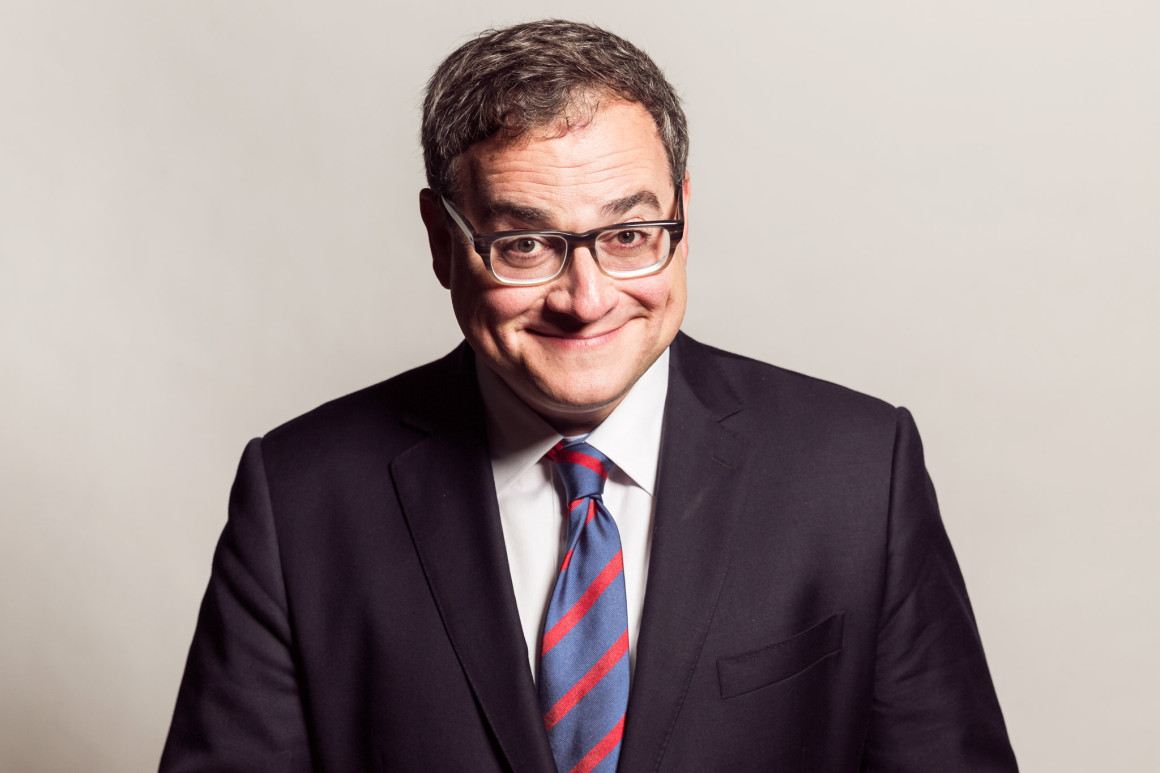
Ezra Levant promotes “ethical gas” from fracking
After championing the oilsands in Ethical Oil , Ezra Levant is back with a new book, Groundswell: The Case for Fracking . In the book, he states his case for hydraulic fracturing, or fracking, a gas extraction technique where a mixture of water, sand and chemicals is shot underground to release natural gas.
Approximately 174,000 wells have been “fracked” in Alberta since the technology was created in the 1950s. Proponents of the practice claim fracking is safe and well-tested, and that natural gas taken from the wells is cleaner than other fossil fuels. But fracking’s skeptics say contaminated groundwater, earthquakes and the release of methane at cracked wells is reason enough to end the practice.
Levant likes to poke at liberals and celebrity activists. The last time the Gauntlet saw Levant, he was shouting down a room full of student journalists for their left-wing biases on issues like abortion and the oilsands.
The Gauntlet sat down with Levant to discuss what he calls “ethical gas,” the environmental impact of fracking and why he thinks fracking’s opponents are like “9/11 truthers.”
The Gauntlet : Why did you decide to tackle fracking in your new book, Groundswell?
Ezra Levant: I noticed a lot of the folks who are anti-oil sands are also anti-fracking. Sometimes the exact same people and the exact same funders. I thought, “what is this fracking thing? I’ve heard a bit about it.” I studied it up. I’ve been on a frack job — went to one last week just to check it out — and I wrote this book.
Until we develop that fantasy fuel of the future that’s perfect in every way, we’re going to use fossil fuels. Even Greenpeace talks about a 40-year transition and they don’t even have that end goal yet. For the rest of my life, we’re going to be using fossil fuels. Where should they come from?
In Groundswell, you call the gas coming from countries like Russia, the United Arab Emirates and Qatar “conflict gas.” So if we continue to frack in western countries and not buy from authoritarian regimes, we’re supporting “ethical gas”?
First of all, I think you will accept that whatever the problems are with our oil and gas industry, we actually have some rules. We have an independent court system. We have an independent press.
If there’s a mistake, or, god forbid, if someone actually does something wrong, they get it and they get it hard.
I think you will accept that if we’re talking about gas from here or gas from there, ours is more environmental and ours is more peaceful. Treatment of workers — they’re not allowed to unionize in the Persian Gulf. Like, they’re foreign indentured workers. And then, finally, human rights. Women in politics, gay-rights, treatment of minorities — this is just normal in Alberta. We don’t even think about it anymore. That’s why I call it ethical gas.
So if we support fracking, we’ll be able to take money away from these authoritarian countries. But if we frack, are we not going to sell the gas to China?
China just agreed to a $400 billion deal with [Russian natural gas company] Gazprom. China is going to get its gas no matter what. Would it be one inch more ethical and better for the world that instead of sending that $400 billion to Putin, if, say, they had signed that with Canada? Now, I don’t think we could have fulfilled that whole contract, but if they’re going to buy oil and gas anyway, it is slightly better that their money goes to Canada instead of Russia.
Proponents of fracking call it the cleanest energy source of our day. How can we call fracking a clean source of energy when lots of methane — a dangerous greenhouse-gas — is released into the atmosphere during the fracking process?
On April 14, the Environmental Protection Agency released what they call their “green- house-gas inventories.” That’s a fancy way of saying how much greenhouse gas the United States is emitting. The EPA says because of fracking, American emissions are down. Down so low, they’re down to 1992 levels. The United States has reduced its greenhouse-gas emissions of all sorts — CO2 and methane — by 11 per cent in the last five years. I think that should be the biggest news story in environmental reporting today.
A report commissioned by the Canadian government found that we don’t know enough about the environmental impacts of fracking. Isn’t it unethical to continue fracking if we don’t know what the consequences will be?
Fracking was patented in 1949, [has been done] one million times in the States, 120,000 times in Alberta. It is so normal.
It reminds me of Jenny McCarthy and her anti-vaccine thing. Or folks who say Wi-Fi creates cancer. Hey man, you and your conspiracy theories about anti-vaccine BS — 9/11 truthers: “Hey man, fire can’t melt steel.” Okay, you guys all hang out together over there while the rest of us in reality-land know that Wi-Fi doesn’t cause cancer, we know that vaccines don’t cause autism and we know that after a million fracked wells, [fracking] does not pollute water.
